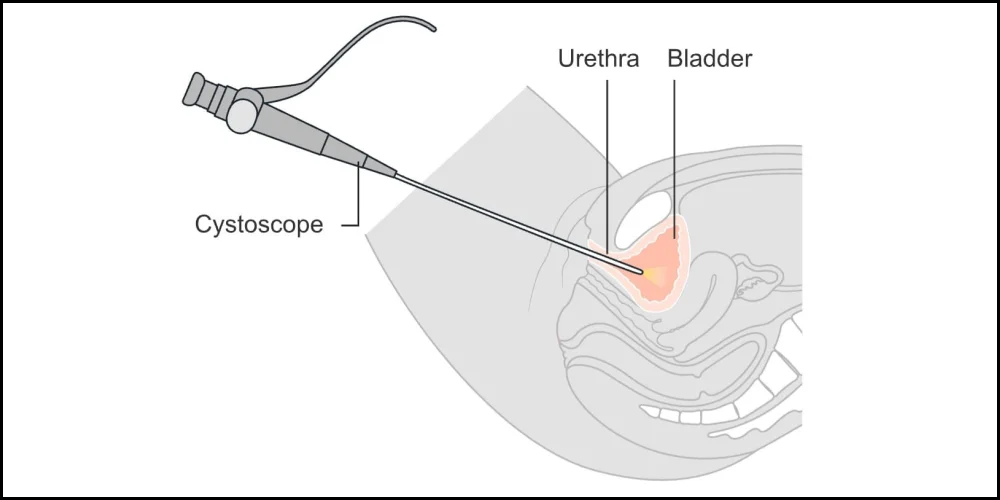Bladder Tumor Resection Surgery
Precise and Advanced Care for Optimal Tumor Management
Bladder tumor removal surgery is a vital procedure for treating and managing bladder tumors. The procedure requires the elimination of bladder tumors to stop cancer from spreading alleviate symptoms, and maintain the function of the bladder. In Chirayu Super Speciality Hospital, our team of highly experienced Urologists and Oncologists uses the latest technology and customized care to provide an effective and efficient treatment options for bladder tumors. We’re committed to offering comprehensive treatment from diagnosis to recovery, to ensure the best outcome for all our patients.

What is Bladder Tumor Resection Surgery?
Bladder tumor resection surgery the procedure that is designed to remove bladder tumors, usually performed with the cystoscope through the bladder. This minimally invasive procedure permits treatment of cancers with out large incisions. The procedure can be utilized to treat benign and malignant tumors. Often, it is as part of a wider treatment plan that could include other therapies, such as immunotherapy or chemotherapy.
Who Performs Your Surgery?
The resection of your bladder tumor is carried out by a team of highly skilled urologists and cancer specialists who specialize in treating bladder cancer. Our surgeons have experience applying sophisticated techniques to ensure accurate cancer removal while also preserving the function of your bladder. They collaborate closely with a multidisciplinary team including pathologists, radiologists and nurses to provide complete medical care that is tailored to meet your individual requirements.
Types of Bladder Tumor Resection Surgery
- Transurethral Resection of Bladder Tumor (TURBT) :- A minimally-invasive procedure in which the cystoscope is introduced into the urethra in order to eliminate bladder cancers. It is typically used for therapeutic and diagnostic reasons.
- Partial Cystectomy :- It involves taking out a small portion of the bladder that contains the tumor. This procedure can be utilized to treat larger tumors or ones located in particular areas, with the aim to maintain the bladder’s function to the maximum extent is.
- Radical Cystectomy :- It involves elimination of whole bladder and its surrounding tissues which includes the prostate and the uterus, in some instances. This is usually contemplated for more severe or aggressive cancers.
Indications for Bladder Tumor Resection
- Bladder Cancer :- To remove malignant tumors and stop cancer spreading.
- Benign Bladder :- Tumors to ease symptoms and avoid complications.
Recurrent Tumors For managing and eliminate tumors that returned after previous treatments.
Diagnosis Leading to Bladder Tumor Resection
Diagnostic imaging may include tests like ultrasonography, CT scans, or MRI as well as cystoscopy as well as biopsy to determine the existence and nature of cancer. The diagnosis aids in determining the best surgical strategy and treatment strategy.
Treatment Process
Resection of the bladder tumor is done under regional or general anesthesia. The time frame of the procedure varies based on the size of the tumor as well as its site. Following surgery, patients are assessed for their recovery and potential complications. Patients can typically expect to be in hospital for between 1 and two days, based on the extent of the procedure.
Care and Recovery After Surgery
The recovery process following resection of a bladder tumor includes managing pain, observing for any complications, and adhering to the post-operative instructions for care. It is recommended that patients drink lots of fluids. refrain from vigorous activities, and make regular follow-up appointments to monitor. The time to recover varies, however, it is usually the return to normal activities after some weeks.
Advantages of Choosing Our Surgery Services
Advanced Surgical Techniques
We use the latest minimally invasive techniques to ensure precise tumor removal and faster recovery.
Expert Care Team
Our team of specialized urologists and oncologists provides expert care and personalized treatment plans for optimal outcomes.
Comprehensive Support
From diagnosis through recovery, we offer comprehensive support and follow-up care to ensure your well-being and long-term health.
What Our Patients Say
Read about our patients positive experiences and how Chirayu Super Speciality Hospital has positively impacted their health and well-being.


I highly recommend Chirayu for bladder tumor resection. The entire team was professional, caring, and dedicated to ensuring the best outcome.


The skilled surgeons at Chirayu provided excellent results with my bladder tumor resection. I’m grateful for their expertise and care.


My bladder tumor resection was effective, and my recovery was smooth. The care I received made a significant difference in my overall experience.


The team at Chirayu provided exceptional care and precision during my bladder tumor resection. I felt supported and well-informed throughout the process.
Meet Our Medical Specialists
Our expert team specializes in bladder tumor resection, offering advanced surgical care with a focus on precision and patient well-being.
Frequently Asked Questions
Here, we provide answers to some of the most commonly asked questions to help you better understand about our surgery services. If you have any additional questions, please do not hesitate to contact us.
Bladder tumor resection surgery involves the removal of tumors from the bladder using techniques such as TURBT, partial cystectomy, or radical cystectomy.
Types include transurethral resection of bladder tumor (TURBT), partial cystectomy, and radical cystectomy, depending on the tumor’s type and stage.
Candidates include individuals diagnosed with bladder tumors or cancer, including those with benign or malignant growths.
Risks include infection, bleeding, urinary incontinence, changes in bladder function, and potential need for further treatments.
Benefits include effective removal of tumors, reduction of cancer spread, relief from symptoms, and improved bladder health.



